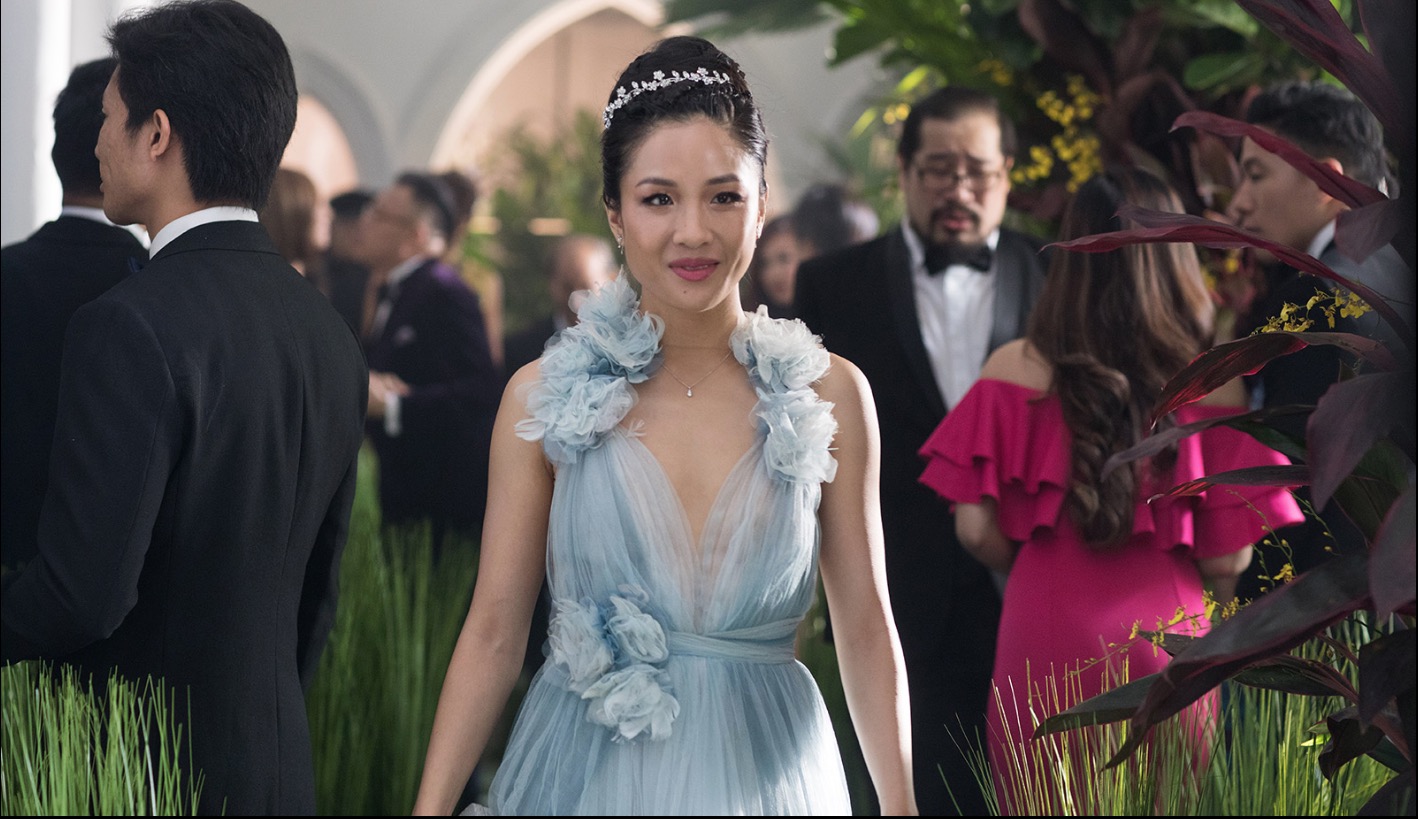Review: Crazy Rich Asians Fuels the Rom-Com Renaissance by Shaking Things Up
4.5/5 stars.


From the very start, Crazy Rich Asians lets you know it’s not going to be what you expected. The film opens with a flashback to the 1990s, and the essentially titular Young family experiencing an encounter of overt racism—not the sort of light, quirky-conflict character development that rom-com fans are generally used to.
There’s a lot that sets this movie apart from others in its genre, not the least of which is the film’s landmark representation. It’s been 25 years since a major American studio put out a movie with a primarily Asian cast (the last was The Joy Luck Club), and those behind the movie want to make history. Director John M. Chu and the author of the book the film is based on, Kevin Kwan, explained recently that they passed on a lucrative Netflix deal because they wanted the movie to be an “an old-fashioned cinematic experience,” and they also wanted it to break the box office, to set a precedent that studios couldn’t ignore when deciding whether or not to greenlight other Asian-led major studio films.
And yes, Crazy Rich Asians is good enough to do that. The movie centers on Rachel (Constance Wu), a Chinese-American economics professor whose boyfriend, Nick (Henry Golding), turns out not to be the regular middle-class guy she thought he was, but is instead, yup, crazy rich. That’s something she only learns when accompanying him back to his family’s home in Singapore to attend his best friend’s wedding, unexpectedly dropping her right in the middle of what turns out to be, both for her and for the audience, a smorgasbord of opulence porn.
Again, the impact of an all-Asian cast in a movie set in an Asian country can’t be overstated. Do yourself a favor and spend some time with reviews written by Asian and Asian-American critics, but the appeal of this movie isn’t just for Asian audiences, and any studio fears to that effect are proven laughable (or laughably bigoted, if that can be a thing) by the film itself. Because at its core, this is just a great, super fun movie, and a solid entry in our current rom-com resurgence.
With Nick’s mother (Michelle Yeoh) and plenty of others in her community immediately disapproving of Rachel due to her outsider status, the film only scratches the surface of a deeper commentary on class and wealth, but that’s not exactly a fault, as that’s not what the movie is trying to do. This is a Cinderella story, and we’re meant to both revel in/gawk at the lush backdrop of uber-wealth and invest in Rachel’s personal journey into this strange world.
Rachel’s college friend, Peik Lin (played by the incredible Awkwafina who really needs to be cast in literally everything), offers a whirlwind bit of socio-political history for the area, but overall, this isn’t a film about capitalism and class. Like pretty much all movies in its genre, it’s about one woman navigating unfamiliar circumstances in hopes of love and acceptance.
The only negative of Crazy Rich Asians from a rom-com perspective is that the “rom” part is fairly lacking. It’s not that there isn’t chemistry between Nick and Rachel (boy, is there), but Nick’s character—or maybe it’s their relationship in general—is sorely underdeveloped. He exists more as the concept of a romantic lead, and the movie really revolves around Rachel being left to fend for herself, in his world, without him.
If anything, I found myself consistently angry at his character for leaving her alone and not preparing her for her what she was getting into. Obviously, a film needs conflict, and the entire conflict of this one was rooted in Rachel’s status as a fish-out-of-water in this crazy rich world, but I didn’t know how to root for her relationship with a guy who didn’t tell her anything about any of the aggressively judgmental, socially pernicious situations she was going to be entering, repeatedly leaving her alone to fend for herself without any support from him at all. It’s telling that the climax of the film isn’t even between Nick and Rachel, but Rachel and Nick’s mother.
On the other hand, how many romantic comedies have we seen where the female lead’s entire character is limited to how she exists in relation to a man’s interest in her? If we’re going to have an underdeveloped character in this pairing, this is, at the very least, a preferable change.
I’m a huge fan of romantic comedies, but it’s hard to deny that the by-the-numbers formula used by so many of them can be a huge detriment to the genre. Crazy Rich Asians is sweet and funny and utterly lovely, and Constance Wu is a joy to watch from start to finish. This movie will no doubt scratch the itch of anyone craving a good romantic comedy, made all the more exciting to watch by not adhering to that standard formula.
(image: Warner Bros.)
Want more stories like this? Become a subscriber and support the site!
—The Mary Sue has a strict comment policy that forbids, but is not limited to, personal insults toward anyone, hate speech, and trolling.—
Have a tip we should know? [email protected]
